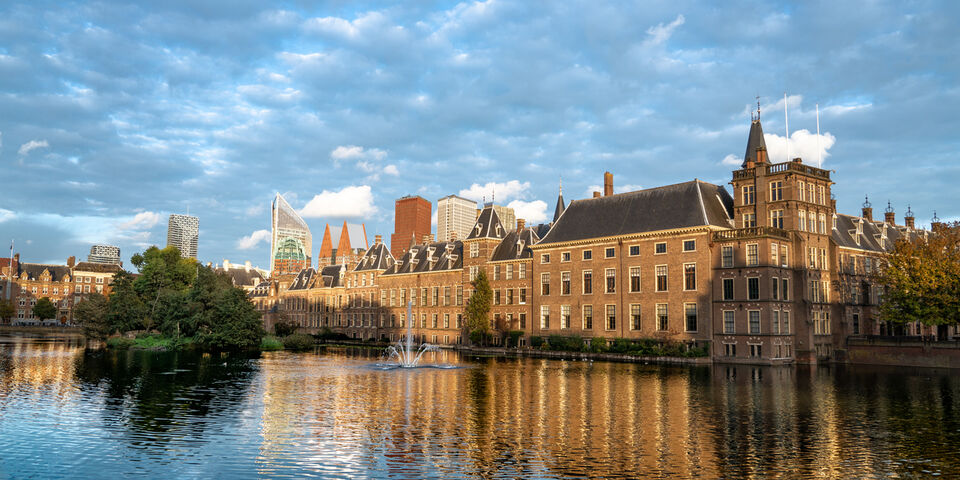Minister of Education Bruins steps down, Hermans takes over
Following the resignation of NSC minister Caspar Veldkamp, the other NSC members of the cabinet have also stepped down. Outgoing Minister of Education, Culture and Science (OCW) Eppo Bruins left office immediately. VVD minister for Climate and Green Growth Sophie Hermans will temporarily take charge of OCW.
Hermans worked for years as political aide to VVD leader Mark Rutte. In 2017 she entered the House of Representatives for the liberals and five years later became their parliamentary group leader. She is the daughter of Loek Hermans, who served as Minister of Education, Culture and Science in the second “purple” coalition government (1998–2002) of the PvdA, VVD, and D66.
The political consequences of NSC’s departure remain unclear. VVD and BBB will likely propose new ministers to take over until the next cabinet is formed, a process that may take months. The elections are scheduled for October 29, after which coalition talks will follow. The Rutte IV cabinet continued in an outgoing capacity for nearly a year.
The Bruins ministry
Bruins himself has not yet commented. “He is not giving interviews at the moment,” an NSC spokesperson said Friday evening. That leaves the Hoger Onderwijs Persbureau to look back.
It came as a surprise to many that Bruins became OCW minister for the New Social Contract party. What was a Christian Union politician doing in a cabinet some considered packed with populists and extremists?
The new coalition of PVV, VVD, NSC, and BBB announced steep cuts to education and research. For the PVV this was a cause for celebration, with the budget cuts framed as a victory against so-called “activism” in universities. Bruins, however, had previously argued for increased investments in education and research in his role as chair of the Advisory Council for Science, Technology and Innovation. A segment by comedian Arjen Lubach highlighted the painful contrast: just before taking office, Bruins had been saying the exact opposite.
Bruins knew what he was signing up for: in May 2024 the four coalition parties had already laid out the cutbacks in their outline agreement. Only afterward was he appointed minister.
He realized the odd impression it gave. At every opportunity, he tried to distance himself from the cabinet’s policies. He called the cuts “painful” and “ugly,” but stressed that he was bound to his mandate. The government wanted more money for defense and more purchasing power for Dutch citizens, he repeated time and again.
A plea for leniency
“I hope people will look back with some leniency and say: at least he tried his best,” he said less than a year ago at the opening of the academic year. He wanted to make sure “that we don’t break the valuable things.” Bruins (1969) earned his PhD in nuclear physics and built a career in science.
He managed to preserve the universities’ “sector plans” (national collaborations in which institutions coordinate their strategic choices) but cut the starter grants for newly appointed assistant professors. He also wanted to ensure that the late graduation penalty for slow-progress students would not become “disproportionate and harsh.” Still, one way or another, he had to cut spending.
Large demonstrations followed—especially against the late graduation penalty, which sparked widespread outrage—and opposition parties threatened to block the cuts in the Senate, where the coalition lacked a majority. Without Bruins, the coalition parties struck a deal with several opposition parties. The compromise scrapped the late graduation penalty, but higher education was still left with half a billion euros in cuts.
To his credit, Bruins consistently defended the autonomy of educational institutions. In that, he followed the same line as his predecessor Robbert Dijkgraaf (D66). This was particularly clear in his responses to loaded questions about protests, unrest, and safety at universities: institutions are responsible for their own decisions, Bruins emphasized repeatedly. A minister cannot intervene. It was a very different tone from his PVV colleague Marjolein Faber’s “I am the policy.” He also stated clearly that institutions themselves had to decide how to handle the impact of budget cuts on small-scale programs—he would not interfere.
Stepping down
Whatever happened—no matter how odd or harsh the cuts devised by the coalition parties—Bruins stayed on and carried them out. Even new cutbacks in funding for disadvantaged students did not drive him away, though he hoped Parliament might come up with an alternative.
Only now, with the other NSC ministers leaving, has he stepped down as well. Suddenly, he is gone—following in the footsteps of his colleague Caspar Veldkamp.


Discussion